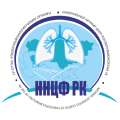LEADERSHIP IN LABORATORY MEDICINE AS THE KEY QUALITY TOOL
E. J. Abraham 1, A.D. Nurakhova2, A.M. Maimakova3, A.Zh. Duisenbayeva2,
U.S. Artykbayeva2, A. Rakhymzhan1
1Al-Farabi Kazakh National University, Almaty, Kazakhstan 2Asfendiyarov Kazakh National Medical University, Almaty, Kazakhstan 3 Kenzhegali Sagadiyev University of International Business (UIB), Almaty, Kazakhstan
Introduction. The effectiveness of medical laboratory activity is largely determined by the ability of employees to find
the root cause in complex situations, to make a non-trivial decision, which will ultimately provide clinicians with
objective data, contributing to the confidence of clinicians in the results of laboratory research, as well as favorably
affect the further introduction and development of diagnostic technologies, which will positively affect the process of
diagnosis, treatment and rehabilitation of patients. In turn, one of the factors that ensures the competence of medical
laboratory workers is the leadership qualities of their managers, whose decisions create the most adequate conditions
for the effective functioning of laboratories.
Objective. To analyze and determine the role of leaders and the significance of leadership in medical laboratories in
Kazakhstan and other countries as one of the vectors of development of laboratory medicine.
Materials and Methods. Performed a comprehensive search of all relevant literature within electronic platforms such
as Semantic Scholar, Science Direct, PubMed, Scopus, Google Scholar and Web of Science using the keywords; «quality
control leadership», «laboratory management», «leadership development», «laboratory manager skills», «quality
manager training», “Kazakhstan», “clinical laboratory leadership» and «laboratory leadership challenges”. The search
was conducted for English-language publications spanning from 2001 up to 2025 to include previous publications and
contemporary practice.
Results: For this study, 138 publications were reviewed for their relevance to leadership in medical laboratories,
specifically in Kazakhstan. Topics examined included roles and responsibilities of laboratory managers, leadership
and management, as well as leadership traits, skills, and leadership styles. In addition, challenges in laboratory services
and standards that define good leadership in medical laboratories were reviewed. Selected leadership practices used
by heads of medical laboratories and quality control managers in Kazakhstan were reviewed along with international
standards and accreditation bodies along with their guidelines. A comparative analysis of leadership styles of medical
laboratory managers and quality control managers in Kazakhstan and other countries reveals its unique dimensions.
Discussion. Modern development of laboratory medicine requires managers not only to have technical competence,
but also high leadership qualities. International organizations such as IFCC, WHO, CDC and others are developing
training programs and guidelines aimed at developing managerial competencies in medical laboratories. Particular
attention is paid to the implementation of flexible training models, mentoring and development of strategic thinking,
business skills and clinical bioanalytics. Leadership development is considered as a process accessible to every
specialist and includes formal education, practice, mentoring and self-reflection. Effective leadership development
programs include an individual approach, on-the-job training, certification and participation in professional
communities. As a result, laboratories that invest in the development of leadership competencies ensure sustainable
quality of diagnostics and improved patient safety.
Conclusion. This review highlights the critical role of effective leadership in modern laboratory medicine. Strong
leadership is essential for ensuring efficiency, innovation, and positive patient outcomes. Without visionary and ethical
leaders, laboratories risk stagnation and reduced care quality. The study emphasizes the need for Kazakhstan and
other nations to enhance leadership development programs, promote professional collaboration, and invest in
leadership as a core element of healthcare. Future efforts should focus on evaluating leadership styles, training
effectiveness, and cultural influences to build resilient, high-performing laboratory environments that adapt to
changing healthcare demands.
Keywords: quality control leadership, laboratory management, leadership development, laboratory mana
LEADERSHIP IN LABORATORY MEDICINE AS THE KEY QUALITY TOOL
Скачать: LEADERSHIP IN LABORATORY MEDICINE AS THE KEY QUALITY TOOL
Скачано: 127, размер: 562.4 KB
